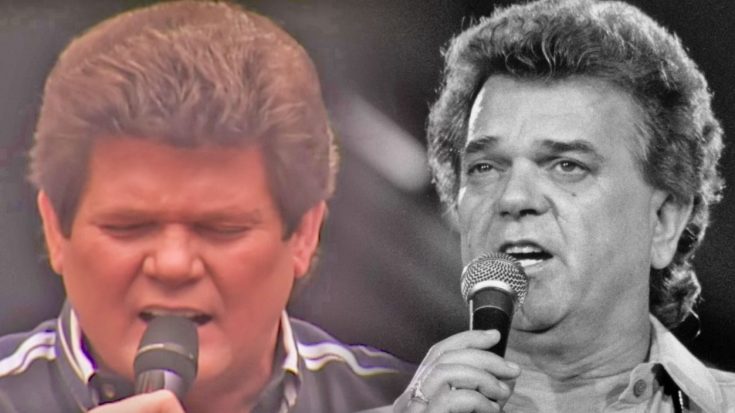
At seventy years old, Michael Twitty has lived most of his life in the shadow of a legend—a shadow that was not heavy, but warm, filled with the glow of love, music, and memories of his father, Conway Twitty. Growing up, Michael watched his father transform simple words into unforgettable melodies, the kind of songs that didn’t just play on the radio—they lingered in kitchens, in cars on long country roads, and in the hearts of fans who felt every note like it was their own story.
Yet, behind all of Conway’s successes, the platinum records, and the sold-out shows, there was one quiet story Michael had kept to himself for decades. Among the songs his father left behind, there was one in particular that Conway never got to record—a tender ballad, full of reflection and truth. It was meant to mark a new chapter in his career, a song that felt like a letter to the world and to himself.
Michael remembers those days vividly. Conway had been rehearsing the melody at home, strumming it on his guitar late at night when the house had gone quiet. Michael would hear the soft hum of his father’s voice, low and thoughtful, and catch glimpses of the lyrics that spoke of time slipping away, of love cherished and love lost, and of the longing to leave something beautiful behind.
But fate is rarely gentle. Before he could bring the song to life in the studio, Conway Twitty passed away, leaving the melody unsung. To Michael, it was as if the song itself had been frozen in time, caught between memory and silence, a whisper meant for the heavens.
Years turned into decades, and the song lived quietly in Michael’s heart. He carried it with him everywhere—on stage, in moments of solitude, in the echo of every fan who still shouted “Hello Darlin’” in honor of the man they loved. And yet, the song remained unfinished, like an unopened letter waiting to find its way home.
Finally, at seventy, Michael knew it was time. He stepped into the studio with a mixture of reverence and trembling hands, holding not just a piece of music, but a piece of his father’s soul. He later said that as he sang the first line, he felt his father there beside him, not as a memory, but as a presence—steady, warm, and proud.
“It felt like I was sending the song straight to heaven,” Michael shared, his voice thick with emotion. “Like I was singing for him, and with him, all at once.”
The recording session was quiet, almost sacred. No crowds, no flashing lights—just a son completing the melody that his father never got to finish. And when the last note faded, Michael said he felt a peace he had been waiting for his entire life.
For the fans, the song is more than a tribute—it is a bridge across generations. It reminds us that Conway Twitty’s voice still lives in his son, in the stories told through music, and in the hearts of those who still hum his timeless ballads. For Michael, it was not just a recording; it was a conversation across time, a final duet with the man whose voice had touched millions and whose spirit still lingers in every note.
And now, as the world hears this once-silent song, it carries more than music—it carries the weight of love, legacy, and the unbroken bond between a father and a son.